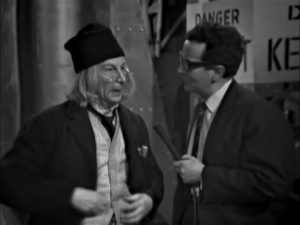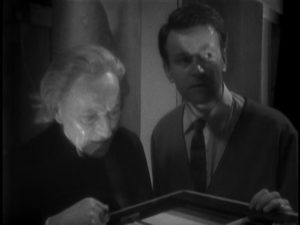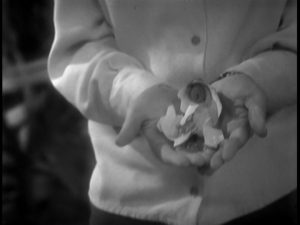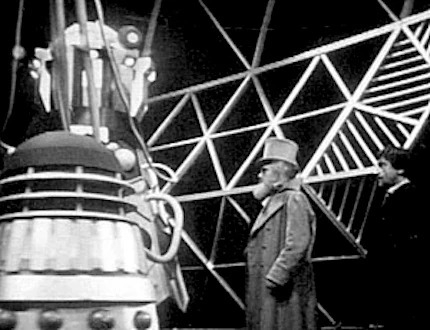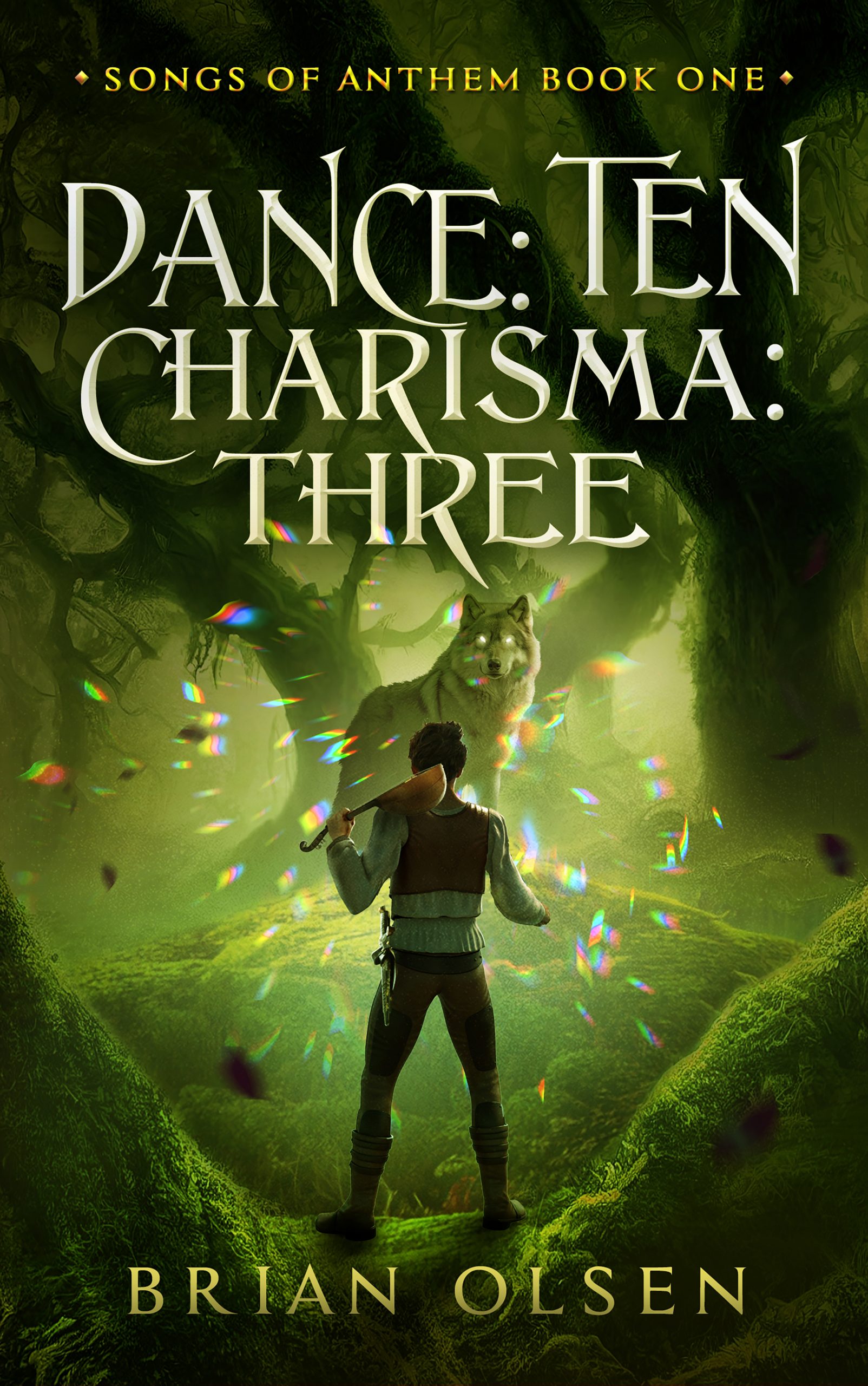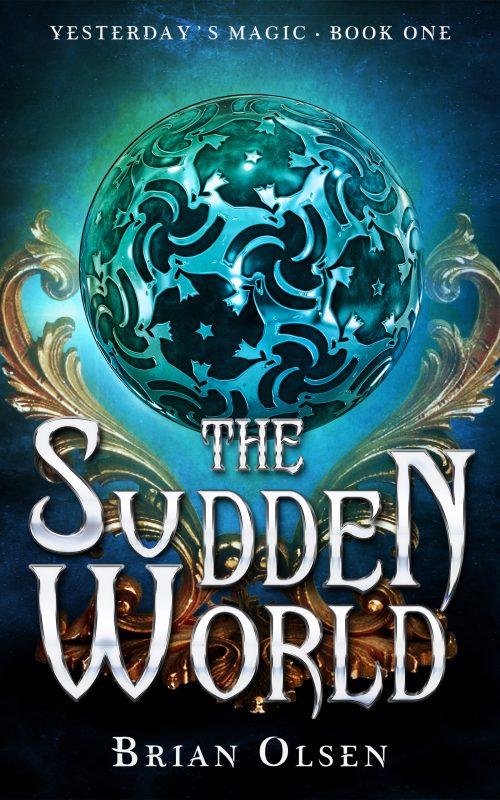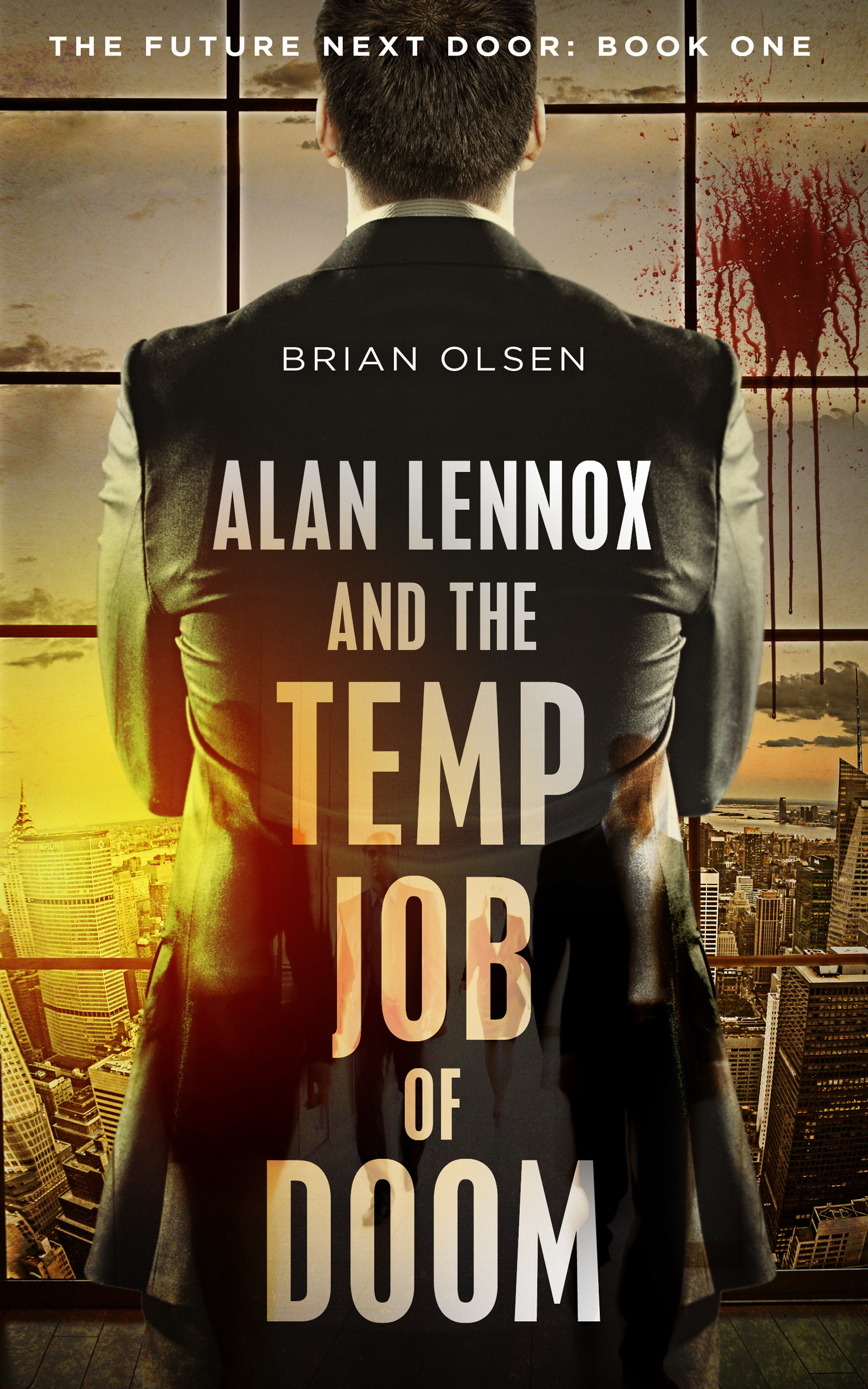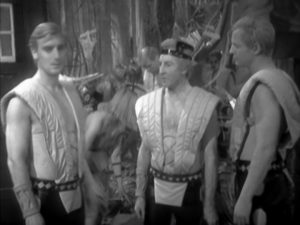
In “The Escape,” the third episode of The Daleks, we meet the Thals, the other inhabitants of the planet Skaro, old enemies of the titular monsters. The Daleks had warned Susan that the Thals would be hideously mutated as a result of the fallout from the neutronic war, but when she meets the Thal named Alydon, she’s struck by how perfect he is. He’s tall, white, blond, handsome, and wearing a groovy puffy vest. Though frightened of the stranger at first, she comes to trust him within moments of meeting him. Admittedly, he’s acted in a friendly manner and given her life-saving anti-radiation drugs, but still, from here on out none of the TARDIS team will doubt the Thal’s good intentions. Being hot never hurts.
We never get more than a glimpse of a Dalek outside its casing, but the story makes clear how hideous they are. Alydon says, “If they call us mutations, what must they be like?” (Which strikes me as somewhat shoddy writing, just as an aside – from his tone he obviously means the Daleks must be ugly, but that turn of phrase suggests he means they must be even more beautiful than the Thals. I’ll forgive Terry Nation – he didn’t always have the best attention to detail, but he more than made up for it in other ways.) When Ian and the Doctor get a look at one, they act instantly to stop Barbara and Susan from seeing it; they can barely stand to look at it as they scoop it out of its casing. We only see a single claw sticking out of the coat they’ve wrapped it in, but it’s enough to show us that whatever the Daleks look like, they’re no Thals.
To recap: ugly aliens, bad; pretty aliens, good. It’s… not a great message, and I’d like to think it wasn’t a conscious one on Nation’s part. It’s hardly uncommon to make the evil monsters revolting, after all. But… the Thals aren’t just a group of normal people. They’re all like Alydon – white, blond, hot. (Well, tastes vary, but they’re all intended to be hot.) And they all wear clothing showing off lots of skin. (Stupid sexy Thals.) Why did Nation make a point of the Thals being physically perfect? Or to get more specific, and more troubling, why did he make a point of the Thals being physically perfect according to racist Aryan ideals?
Nation has said that the creation of the Daleks was influenced by the Nazis, and their goal of extermination of anyone who did not live up to their ideas of physical purity. It’s a striking choice, then, to make the Nazi-analogues’ enemies look exactly like the actual Nazi’s self-image (whether that specific choice was made by Nation himself, or someone else on the production team). I’m struggling to figure out if there’s some deeper meaning to it. On the face of it, the theme might be, “The Nazi were wrong about genocide, but they were right about some people being better than others based on physical characteristics.”
Do I think anyone involved in making this story literally thought that? Uh… maybe? The show’s lead actor would have probably vigorously agreed with that statement, since William Hartnell was, by most accounts, racist as hell. And antisemitism was sadly rampant in the UK in the sixties, so making sure the Space Nazis’ enemies looked as non-Jewish as possible might have been a consideration. The most gracious reading of the story is that nobody really thought it through; that making the übermensch the good guys was an unconscious choice. The Thals are the opposite of the ugly Daleks, so let’s make them attractive, and white blond people are attractive. I’m sure you can see the problem with that line of thought – unconscious racism is still racism.
So are the Thals racist? Yes. The show will have worse moments in the future – much, much worse. But making the perfect specimens of goodness based on their physical characteristics all white and blond is racist, whether that was the intent or not.
But these essays are supposed to be exploring what it is I love about Doctor Who. (When I remember that that’s what they’re supposed to be doing, anyhow.) And one of those things is its longevity, and how that allows the show to contradict itself. Doctor Who is large, it contains multitudes. Two seasons after The Daleks, Galaxy 4 will convey the opposite message: the hot blond aliens, the Drahvins, are bad, and the hideous aliens, the Rills, are good. There! Racism solved! Until The Celestial Toymaker a few stories later, when a character says the n-word. (They wisely took that out of the recent animation.) And back and forth it’ll go, throughout its long history.
No easy answers, then. I won’t excuse The Daleks as being a product of its time – that’s always a cop out when talking about past examples of racism, and assumes nobody of that time could have recognized it, much less been impacted by it. I still think it’s a great story, and this is a great episode, but it’s dishonest to acknowledge that without also acknowledging its murky, problematic messaging. So I’ll be troubled by the casting choices, while also enjoying how well Thal Ganatus fills out his puffy vast. I can contradict myself. I’m large, too.
